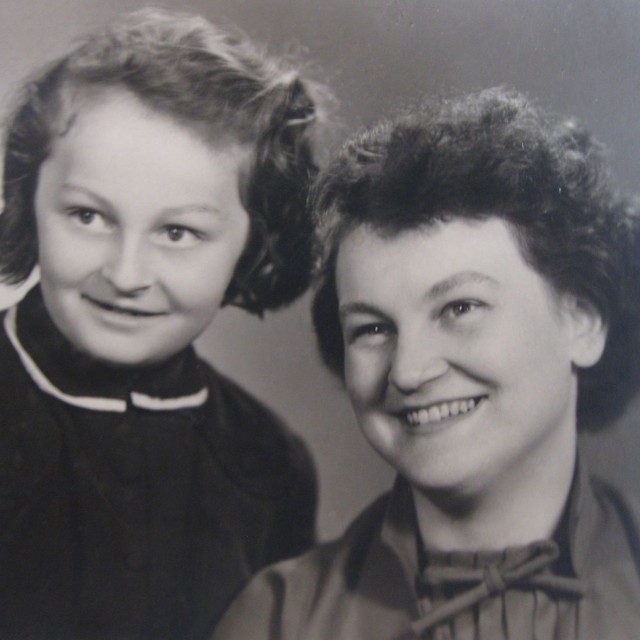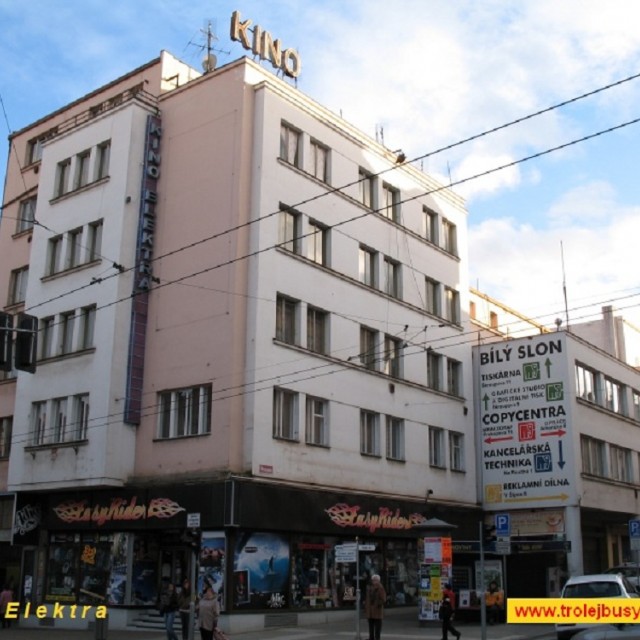My first taste of war
Ida Milotová experienced several Allies’ air raids firsthand in Plzeň during the World War II while she was still aged less than fifteen. She and her family weathered the raids in the cellar of the Elektra Cinema where she lived with her parents and sister at the time. “The first raid, which hit Radobyčice, was horrible – it was my first taste of war, up close. There was a dead dog in the debris; the dead people’s bodies had been cleared but it nevertheless shocked me then.” Towards the end of the war there were more raids of Plzeň as Škoda continued manufacturing war material for Germany. There was a restaurant, known as U Poláčků, in the cellar of the house where she lived at the time, and it served as a shelter for the people in the house and passers-by during the raids. “Used to be, the siren woke us up three times a night and we had to go to the cellar. A bomb once exploded directly in the yard of the opposite building. It was a terrible bang and then the shockwave broke all windows in the vicinity, and it made the glass door to Poláček’s restaurant swing open and break. I was terribly scared – I thought we were hit, but we were lucky.” Ida Milotová could speak German well, which may be why she had to wear a powder blue armband with a big letter M on it. The M stood for ‘Melder’, or reporter. Her obligation, in the event that the place where she was during the bombing got hit was to get out of the debris as soon as possible and inform the nearest German forces about the raid. Luckily, Ida was never in this situation during the war.
Hodnocení
Abyste mohli hodnotit musíte se přihlásit!
Trasy
Příběh není součastí žádné trasy.
Komentáře

Bombing of Plzeň during World War 2
The Nazis acquired major weapon industries including the Škoda plant in Plzeň during the occupation of Czechoslovakia during the World War II. The Hermann Göring Werke group took over the arms factories and the Nazi military industry grew by approximately twenty percent as a result. The Plzeň facility was one of the most frequent targets for the RAF and later USAAF. Plzeň was bombed twelve times between 1939 and 1945 and was the most often bombed city of the Protectorate. The RAF attempted to attack Škoda Plzeň five times in 1940 and 1941, but the insufficiently powerful aircraft never reached Plzeň. The situation changed when the RAF deployed four-engine long-range bombers and improved navigation systems. To confuse the enemy, the Nazis even erected a mock Škoda factory in the fields between Křimice and Vochov, but the Allies were informed about it through the domestic resistance. Six RAF aircraft reached Plzeň for the first time in the night of 25 April 1942. Even though the resistance paratroopers had lit navigation fires (the same group that would go on to assassinate Reichsprotektor Heydrich on 27 May 1942), bombs hit the fields near Koterov without causing any damage. During the subsequent twelve months, the RAF attempted two more raids – without success, as it mistakenly hit the mental asylum in Dobřany whose facilities resembled a factory. The British aviators succeeded for the first time in the night of 14 May 1943, hitting 93 buildings in the Škoda plant (steelworks, assembly halls, car factory and machine gun factory). The conquest of south Italy in September 1943 enabled the Allies to attack Central Europe with more power. They unleashed a true war inferno above Plzeň in the night of 17 April 1945. First they lit the targets with fire bombs. Witnesses state that they turned the night into the day and there was enough light for reading newspapers as a result. Within just seventeen minutes, the Allies’ aircraft dropped 891 tonnes of general purpose bombs and four tonnes of incendiary bombs. Taken by surprise, the Germans were unable to defend themselves efficiently and none of the attacking aircraft were hit or damaged. The target of the bombing was the train station and the adjacent railway node, which were ruined in a moment and the Germans were unable to make them operational until the end of the war. Towards the end of the war, Plzeň’s Škoda was the last major arms company left relatively undamaged, remaining in operation and supplying the Nazi army with the required material. The USA Air Force made the last and biggest air raid of Plzeň on 25 April 1945 with two hundred B-17 bombers attacking the Škoda plant alone. The citizens of Plzeň were warned of the raid openly on the BBC radio, which resulted in major losses and casualties on the Allies’ side, as 58 aircraft were heavily damaged and 7 shot down; 22 airmen died.




